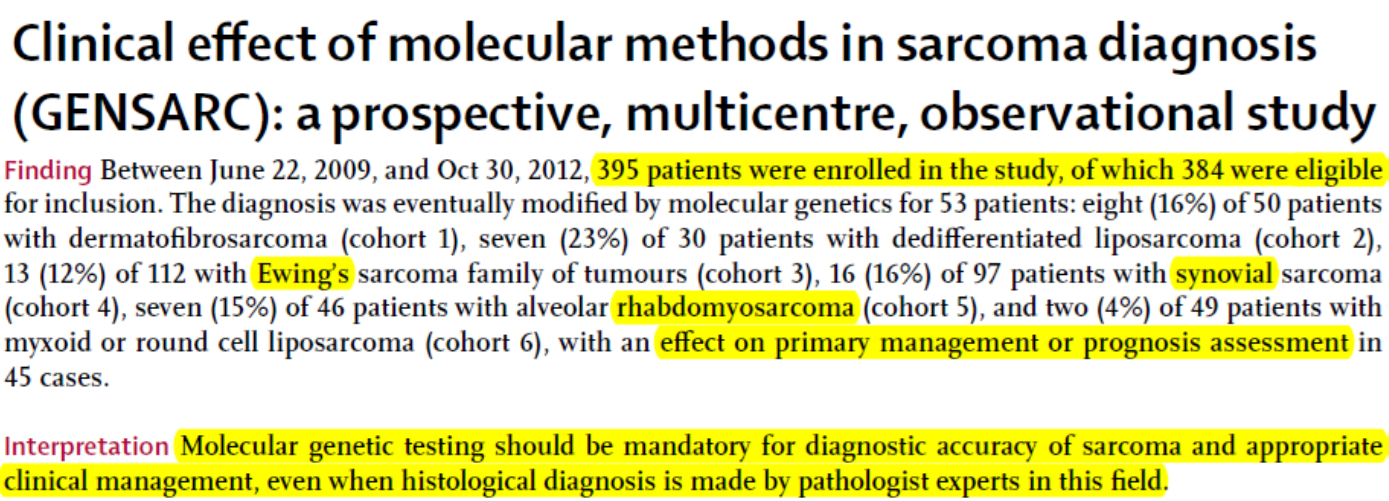 Molecular diagnostics offer unparalleled sensitivity and accuracy in Sarcomas
Molecular diagnostics offer unparalleled sensitivity and accuracy in Sarcomas
Accurate
Cancers of soft tissues, sarcomas, have many different types. It can be notoriously difficult to precisely diagnose some of the sarcomas in the histopathology laboratory. It is reported that even 40% of the most expert pathologists will disagree on naming the sarcoma correctly from histology results. However, accurate diagnosis is essential to decide on the appropriate treatment that will benefit the patient.
Recently, experts have written in The Lancet that Sarcomas require obligatory molecular diagnosis to have any degree of certainty for clinical management and therapy. Decision-making prior to molecular diagnosis is risky at best. However, the fact remains that only a handful of soft-tissue tumours have definitive molecular markers and there is still a paucity of laboratories that offer quality molecular testing for these markers.
In the words of the authors themselves, Italiano et al. state in Lancet Oncology this year, “Molecular genetic testing should be mandatory for diagnostic accuracy of sarcoma and appropriate clinical management, even when histological diagnosis is made by pathological experts in this field”
When they are available, a molecular test to rule in or to rule out the genetic markers for the respective soft-tissue sarcomas, or the entire panel is recommended to be employed in routine clinical practice.
Sensitive
Many sarcomas have well-defined chromosomal translocations that can be easily detected by molecular diagnostics. While FISH and karyotyping may also detect translocations, molecular diagnostics are quicker, more accurate and reliable. Therefore, several professional bodies, including the Association of Clinical Geneticists, have recommended molecular testing to precisely diagnose several sarcomas.
Ewing’s sarcoma: over 96% coverage with both variants of t(11;22) EWSR-FLI1 and t(21;22) EWSR-ERG fusion genes
Rhabdomyosarcoma: both markers, t(2;13) PAX3-FOXO1 and t(1;13) PAX7-FOXO1
Synovial sarcoma: over 99% coverage with both markers of t(X;18), SS18(SYT)-SSX1 and SS18-SSX2

References
• Bovée JVMG and Hogendoorn PCW (2010). Molecular pathology of sarcomas: concepts and clinical implications. <i>Virchows Arch</i> 456:193–199
• Burningham Z et al. (2012). The epidemiology of sarcoma. <i>Clinical Sarcoma Research</i> 2:14
• Cerrone M et al. (2014). Molecular strategies for detecting chromosomal translocations in soft tissue tumors. <i>International Journal of Molecular Medicine</i> 33:1379-1391
